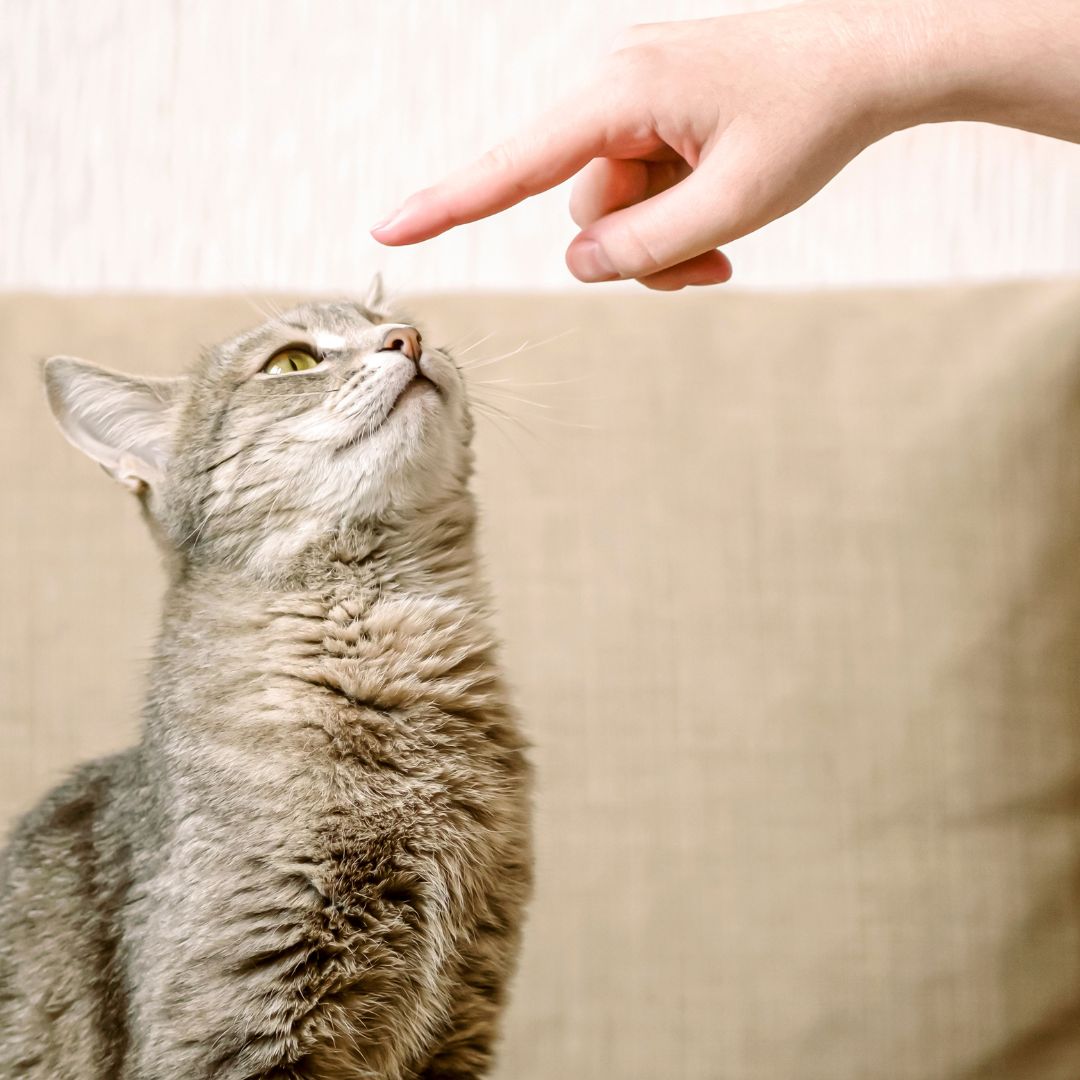It’s often been said that “cats don’t have owners, they have staff,” but in the past I never really bought into that way of thinking.
I live in a household of rescue cats, who are all well-mannered, and well “trained” kitties. Whenever I tell people that my cats have been taught how to behave and that they listen to what I say, they nod their heads and smile politely, while they try not to roll their eyes directly in front of me. I used to think they just didn’t understand cat behavior – after all, I do this for a living, and they don’t. But perhaps they are seeing things that I overlook, because I am too close to the situation. Is it that my cats are well trained, or is it that my cats have trained me well?
Training Your Cat
I like to refer to this as teaching your cat how to behave, rather than “training” your cat. Why? Unlike dogs, who are motivated by the sheer desire to please you, cats are motivated by reward and result. If your cat gets some type of payoff for acting a certain way, she is bound to repeat it again and again, whether you like it or not.
It’s important to remember that getting negative attention is still a payoff to your cat: you stopped and focused your energy on her, which is probably what she wanted in the first place. Cats can play subtle but effective mind games with us, tricking us into doing exactly what they want us to do. They get what they want because we give in to their relentlessness. The way they go about it is so effective and so refined, that you happily do their bidding without ever realizing what their intention was.
But knowing how the feline mind works is half the battle and can be used to one’s advantage when teaching your cat to do (or not do) something. Cats need a reward, a “pay-off,” to learn. Rewarding your cat when she performs a desired action is a sure-fire way to get her to repeat it. Ignoring her when she demonstrates an unwanted behavior is tough for you but effective for curtailing certain bad behaviors.
Things to Keep in Mind
When teaching your cat how to behave, here are a few things to remember:
- Cats Respond to Attention – whether negative or positive, often what your cat wants is attention from you. Waking you up at 3am for snuggles gets a reward if you pay any attention to her, regardless if it’s positive or negative in nature. Throwing her toys or yelling at her, well that’s pure delight for her. She got what she wanted from you. IGNORE her, give her zero payoff, and she will eventually stop this behavior.
- Food Motivation – special yummy treats go a long way toward encouraging a cat to learn, and to trust you. I have recently been visiting a cat named Sessie, who is very shy and was hiding under the bed. I pulled out the treat bag, and she almost immediately overcame her fear of me. Now it’s a game we play, and I reward her with treats after she allows me to gently brush and pet her. Her payoff is twofold: treats, plus love and attention.
- Vocal Queues – cats can learn by connecting a word or phrase with an action. For example, my cats all have learned what “kiss” means, because any time I saw them licking each other, or me, I said the word “kiss” in a special tone of voice, so they would associate it with the action. Now, if two of my cats look as if they are about to argue, I say “kiss” in that voice, and usually they will begin to bathe one another. Fight avoided! A couple of my cats will lick my forehead or give me a head bump if I come up to them and ask them to “kiss” me in that tone of voice. You can reinforce your vocal queues with a treat – this is the best way, for example, to teach a cat her name and to come when called.
- Learning by Association – this is like vocal queues. The difference here is that this is often an unintentional learning that your cat does simply by observing her environment. For example, when you pick up your keys and put on your coat, your cat knows you are exiting the house. You pack your suitcase, and she pouts because she knows you are going on a trip. The same way you can teach her something by associating your actions with a reward. My schedule is quite unpredictable, and I sometimes work very late at night and sleep until late morning. Most people I know complain their cats never let them sleep late. Not my cats! They have been taught that they do not get fed the moment my feet touch the floor. I have a routine, and not until the coffee pot is going do I touch their dishes. So, if I have a chance to sleep in, they sleep in right along with me.
SO, Can Cats Be Trained, um, Taught?
I have been tricked by my cats’ mind games in the past, and perhaps I have been the one who was getting trained at times. As a proud member of my cats’ staff, I am delighted to be owned and operated by all of my feline housemates.
I do get the upper hand sometimes, and they have actually learned how to behave, despite their efforts to the contrary. It is vital to take the time to teach your cat good behaviors to replace any unwanted ones. It will make you and your happier and strengthen that lifelong bond that exists between you.
LINDA HALL AND RITA REIMERS
The Cat Behavior Alliance


